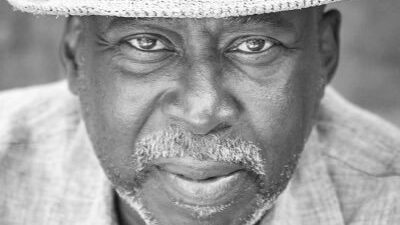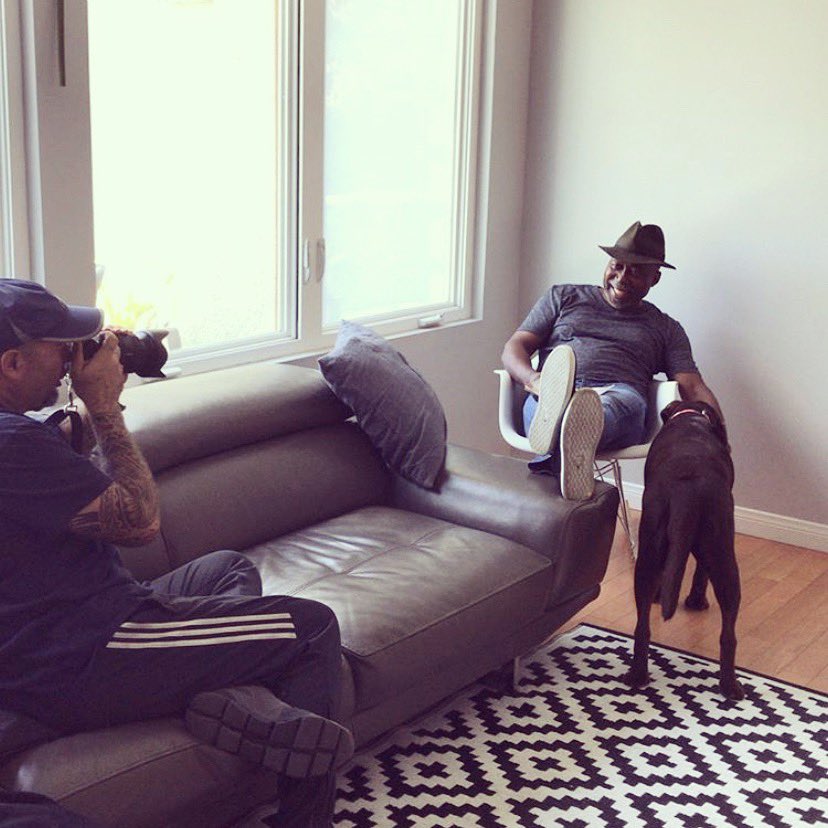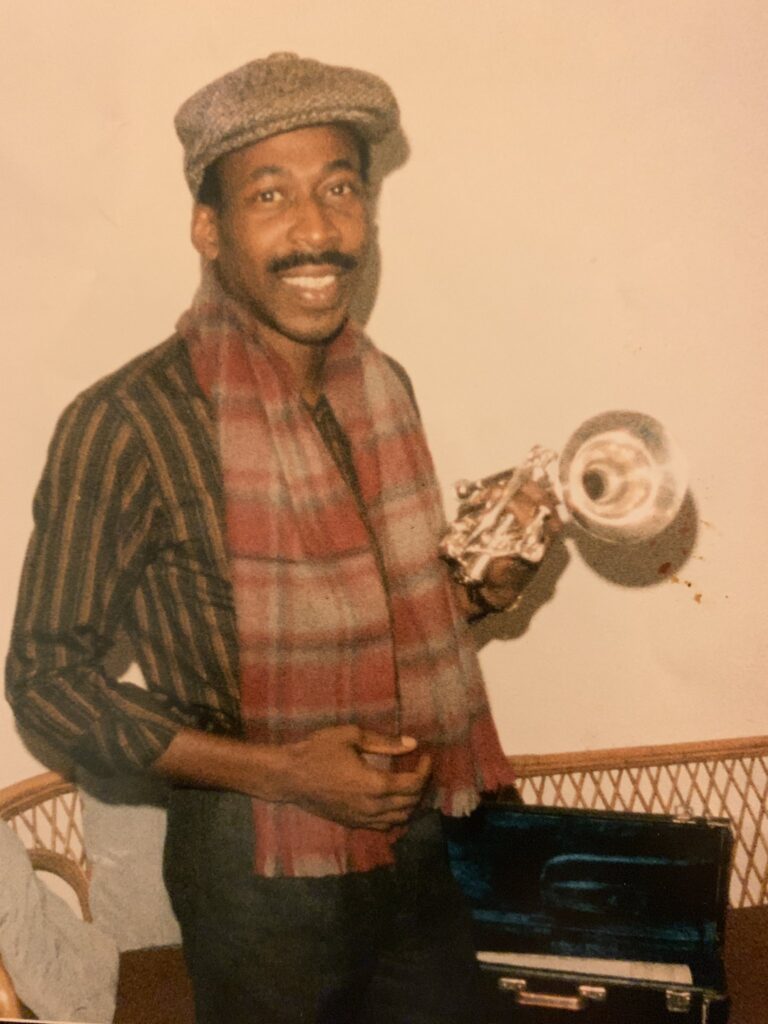
Actor Brent Jennings has brought scores of characters to life onscreen. He earned praise for his portrayal of Oakland A’s coach Ron Washington in the acclaimed 2011 baseball film “Moneyball.” Working with Eddie Murphy, Martin Lawrence and the late great Bernie Mac, Jennings gave a standout performance as ornery prison guard Hoppin’ Bob in the 1999 buddy dramedy “Life.” More recently, Jennings played Ernie Fontaine, one of the lead characters in “Lodge 49,” a comedy-drama series that ran two seasons on AMC.
He now has a prominent recurring role in the popular CW football drama “All American.” A native of Little Rock, Arkansas, Jennings honed his acting chops on stages in Boston and New York before launching his screen career with a role in “Brubaker,” the 1980 prison drama starring Robert Redford. Jennings makes his characters believable by thoroughly understanding and empathizing with them before the cameras roll. With more than a hundred credits on IMDb, the hard-working actor has consistently delivered on stage and screen for more than 40 years.
In an interview with Zenger News, Jennings offers his thoughts on the success of stage actors on the big screen and explains how the COVID-19 pandemic is exposing our selfish ways.
Percy Crawford interviewed Brent Jennings for Zenger News.
Zenger News: Mr. Brent, it’s a pleasure being on with you. You just said you are packing and preparing to travel. I was going to ask, how are you handling COVID?
Brent Jennings: With prayer, and faith. This is a family emergency involving my mother, so I have to go. At least I feel I have to go because no one from the family will be present at a time that’s critical for her. I think this whole COVID thing is teaching us something that we don’t seem to want to learn. And that is, the only way that we can survive it and defeat it is if we look out for each other. It’s exposing a weakness in our culture that allows us to be totally selfish, even in the face of an impending disaster. We remain selfish and self-centered. We think of our own individual rights, as opposed to the rights of our neighbor, the rights of the guys standing next to us. Our individual rights not to wear a mask but not that person in front of us’ right to be healthy and not affected by something because we don’t wear a mask. It’s almost like this virus has some sort of intelligence that knows who and what we are.
So, the way I’m dealing with the virus is, I’m trying to honor the person next to me. I’m wearing a mask, I am social distancing, I am washing my hands. I’m limiting my movements right now when I’m on my home turf. I go to the grocery store and come home. I go at a time when there’s not many people there. I go to small places opposed to the big, huge, mega stores. And when I travel, I try to travel smart. Which I haven’t done but once before during this pandemic. I’m forced to have to travel again now. That’s how I’m dealing with it. This may be a long answer, but that’s my take on everything.

Zenger: I speak with a lot of entertainers and musicians and I was shocked by the answer that a lot of them gave me. They said it made them realize that they needed to slow down, and the pandemic forced them to. Slow down, take a deep breath and look at the big picture.
Jennings: Yeah! I think it’s making all of us slow down. I think slowing down is what made me come to the revelation and the assessment that I just revealed to you. My personal opinion about how we need to slow down and start smelling the roses and taking care of each other. We’re in this get-get-get mentality. We’re in this go-go-go mentality, and it has forced me to self-evaluate what’s important in life. So yeah, I can understand that. Particularly with people who are on the fast track. The ones really going from project to project and really moving at that pace. You do have to sort of slow down and take a look around and see what’s going on and try to understand it. And in that moment, you come to realize what’s important to you. We want to get through this, so I started looking at it like, “How do we get through this?” It occurred to me during that moment of reflection: “Oh, this thing is challenging us to slow down and think about each other.”
You look at countries like New Zealand, which is doing very well with this. Because they cooperate with each other. Senegal is doing very well with this. It’s not a coincidence. It’s the way they’re behaving towards each other. And they’re doing it without vaccines. I think New Zealand has it [vaccine], but I don’t think Senegal has it yet. So yeah, it makes us stop and think and be more aware of what we’re doing and how we’re treating each other.
Zenger: I spoke to Ty Granderson Jones and Hawthorne James, and one thing I am noticing is, a lot of very talented actors like the gentlemen I just named, much like yourself, come from theater. What is it about theater that creates such amazing talents on the big screen?

Jennings: [Laughing] I’m going to crack a joke here, but there’s a little truth to it. I think actors of a certain age [laughing] have a stronger theater background, because at the time we came through, if you really wanted to apply your trade at a steady basis, you kind of had to do theater. There wasn’t the work in television and film that there is now. There was, but not to the extent that there is now. I have a son who is acting; he’s done theater, but his primary focus is TV and film. And he’s making progress in that area, because he sees the opportunities there that I didn’t see when I started. He’s always had his eye on that because he enjoys those mediums. So, I think our generation, the guys you mentioned, we’ve opened things up, and the people coming behind us, there are more opportunities for them than there was for us.
When I was young and I decided that I wanted to do this, I lived in Little Rock, Arkansas, which is far removed from the beaten path when it comes to theater, if you want to take it seriously. So, I used to go and research it. I used to go to News Mart on Tuesdays, and I would get the New York Times and read what was going on in New York. And I would be reading about the Negro Ensemble Company, New Lafayette Theater Company, the Public Shakespeare Festival, and the off-Broadway scene. So, I’m reading about … at that time the Black Arts Movement was in full swing. And I’m reading about all of this theater and black actors on stage. So, my thing was, I gotta get to New York. That’s what was going on in my formative years. So, that’s what I aspired to. To be a part of that. Eventually, I ended up in Boston, where I went to college, and then I moved to New York to do theater. And my desire when I got there was to just focus on theater for five years and refine my skills. And then start looking at film and TV, and it kind of worked out that way for me. It was just the world that I lived in at that time, and what I saw, and what was going on, and what made an impression on me. And I think now, it’s a different world, and younger actors can aspire for different things. It’s all timing.

Zenger: Do theater and television and film go hand and hand, or was it an adjustment for you?
Jennings: Well, there’s a saying that it’s easier for a theater actor to adapt to film and TV than a film actor to theater. And I found that to be true for me. It wasn’t that much of an adjustment. The things you have to learn are technical. If you scratch your nose on a certain line, and you come back to do that scene again, you gotta scratch your nose in the same place at the same time. The continuity things and stuff like that. You have to be able to repeat actions so you can match it and it can be edited together. Knowing a little bit about the lenses and what the camera is doing. How wide it’s shooting or how close it’s shooting, and learn how to adjust your performance for that. A lot of people pay a lot more attention to that than I do. I just kind of get what I feel is a comfortable sense of it and rely on my own instincts to tell me when not to be too big for the camera or when to scale it down or scale it up. I just communicate with the cameraman and get them to guide me a little bit when I feel I need that.
But theater, you work from a different place. It’s a verbal, literary median. It’s words that presses it forward and what moves it. That’s the engine for theater, words. It’s your solar plexus, your vocal command, your ability to be loud, but be intimate at the same time. To project, to be heard in a 1,200-seat theater or a 500-seat theater. It takes a totally different type of adjustment, and people who haven’t done it … It’s something you learn by repetition and guidance. I think it’s a good place to start, but that’s because, I feel like if you can do theater, you can do it all. But that’s my bias because that’s also my background.
Jennings: Well, thank you for that compliment. It’s a matter of doing your homework and having empathy for the character that you’re playing. Once again, it just goes back to, you’ve been doing it a long time, you have your own sort of method of getting yourself involved in the character. It’s basically understanding the character and trying to communicate the truth to that character. That’s about the safest way to say it.
Zenger: Your character Hoppin’ Bob in the movie “Life,” starring Eddie Murphy and Martin Lawrence, but obviously having an abundance of amazing talents in the film: When you have such a star-studded cast, does it bring out your A game?
Jennings: Well, in that case, I think you’re right. But I don’t think acting is a competitive sport. We were just all having fun with each other. I guess in that sense, you can say good actors bring out your A game. But I think good actors always try to present their A game. There is the old saying, “There are no small parts — just small actors.” I think a good actor always wants to be on his A game. And that’s just really fulfilling the requirements of the role. And be the best representative of that character that you can be. And good actors make it easier to do that for you. It’s like playing ping-pong. You start bouncing that ball back and forth across the table, and then the rhythm gets really fast, and people start dancing on that ping-pong table, slamming that ball back and forth. And that’s what acting is like. Like we were saying earlier, it’s really give and take, sharing the moment.
Zenger: It goes back to being selfless.
Jennings: Right, right, right! I think a good actor has to forget himself to be good in a role. To embody that, to give yourself to it. And I’m a character actor, so that’s my orientation. I’m not a guy that puts the butts in the seats. I’m the guy just doing the part that fills some ties in telling the story. Of the better company that you’re with, the easier your job is if you are really aiming to do the best job that you can do and be as honest and open to your character as you can be. “Life” was a very special experience for all of us. I feel very fortunate to have been working with all of those guys. We all were good to each other on the set, and it showed on film.
Zenger: With you, your son and your wife, Mrs. Juanita [Mahone], all being involved in the entertainment field, is there a fine line or a balance on when and when not to discuss work?
Jennings: [Laughing] Well, we’re all very passionate about it, so talking about it is something we like to do. There are times where you go, “Oh, let me back away a little bit,” but sometimes you feel like you can’t be around people but the people who do what we do because we’re the only ones that understand each other [laughing].
Zenger: I see you mess around in that kitchen a little bit too. You’re definitely a Southern man.
Jennings: Oh yeah, I do a little bit. I do get in there and do a little bit [laughing]. I can cook my collards and barbecue ribs. I can do all of that stuff. Even though I switched to vegan about a year and a half ago. So, I’m learning how to cook that stuff too.
Zenger: Any reason for the switch other than health precautions?
Jennings: Just to be healthier and keep everything under control.
Zenger: The evolution of technology and film from your start to now has been drastic. Does that change your approach or anything that you do as an actor, or is that for the directors and technicians?
Jennings: Oh, no, it hasn’t changed what I do at all. I do what I do, and I let all the technicians and experts push me around and tell me where to be, and I do it. I focus on telling my character’s story, and that’s always been the same.
Zenger: Mr. Brent, it has been an extreme honor speaking with you. Best of luck with your mom. Is there anything else you would like to add?
Jennings: We just all gotta take care of ourselves and each other right now.
(Edited by Jameson O’Neal and Alex Patrick)
The post Actor Brent Jennings Sees Pandemic as an Invitation to Thoughtfulness appeared first on Zenger News.
Recommended For You.



Be the first to comment